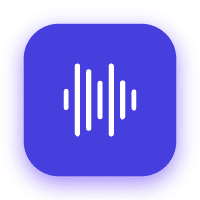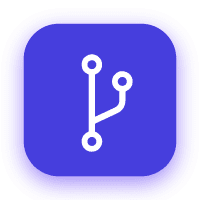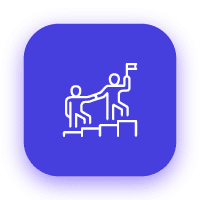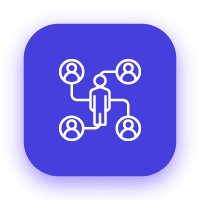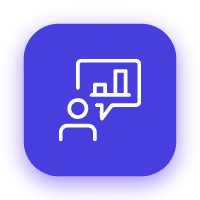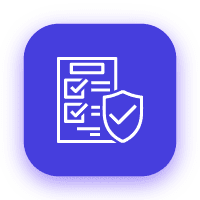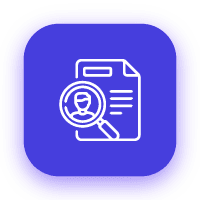3 Tips for Teams That Are New at Working Remotely
At some moment in our lives, we’ll be forced to do things that we’re not used to or that take us out of our comfort zone. This is now the case for most companies and industries around the world as they’re forced to shift from central locations to remote operations.
We’re lucky to be in a time where technology makes working remotely a good and productive practice. Some of the best companies in the world offer flexibility that allows for remote working while maintaining competitive productivity levels.
I had the opportunity to chat with Ari Rubenstein recently. This 25-year feature film industry veteran acts as a director, producer, and visual effects supervisor. Ari recently launched The Blues Crab, an award-winning independent short film produced in his spare time with a remote crew of over 60 artists, contributing from 15 countries around the world.
He shared a few useful ideas for managers and members of remote teams.
Keep Conversation Fluid And Clear
Ari is a seasoned filmmaker, and he has a good idea of what he wants to accomplish, what each person’s role is, and how the deliverables from everyone affect the end goal for a project. For The Blues Crab, Ari created a dependency chart that allowed him to organize each person’s deliverables so the team could stay agile and keep critical items – and people – from becoming a bottleneck.
To work with his team of 60 artists across 15 countries, Ari used a straightforward technology stack using tools that most of us are familiar with and use in our daily lives like video conferencing via Skype, chat, collaborative documents and email. He ensured that the team was equipped with reliable internet service and any software they needed to do their jobs, including Shotgun – an online film management tool for the core production group – and Traq.ai for capturing, sharing, and organizing notes from production calls and meetings.
Since English is not the primary language of many team members, a solid technology footing allowed for more fluid and collaborative conversation to help them close any language gaps.
In Ari’s words:
“I’m working with sixty people, and no one knows what takes place in every conversation, so I have to be able to quickly pull up my documentation to clarify things and share them with the team. Keeping conversations organized like a well-oiled machine helps keep remote employees engaged and their morale high.”
Boost Morale Through Personal Connection
It’s not uncommon for remote team members to feel detached from central teams – or isolated from the work – especially when much of the action happens in a central headquarters.
Ari understands this, and his approach was not only genius but genuine. Before he approached each team member with details about their role and their commitment to the project, he spent time getting to know each person personally and to learn about what motivated them to be part of the production. Throughout the project, he followed up with each team member to ensure they were making progress toward their personal objectives as well as the project goals. This approach is something that top-performing salespeople master throughout their careers.
Ari also invested in being incredibly organized with every conversation so that information was conveyed quickly and clearly, and team members didn’t have to waste time hunting down critical details. Being respectful and responsible with top-down communication ensured that Ari could avoid stressful situations and maintain strong relationships with team members even after the project’s conclusion.
The Blues Crab was produced in Ari’s spare time. Fast, reliable access to all communication without losing the context of each conversation was crucial for the success of the project, and Traq.ai was able to deliver precisely that.
Manage Teams Collaboratively
Ari emphasized that remote team managers shouldn’t rely only on the self-motivation of their remote workers, but to spend time including them throughout the project with frequent updates and clear conversations so they know they’re part of the team and part of the outcomes.
Having a personal connection with each team member helps close the physical distance and provides solid footing for each person’s development within the project and the team itself. Because remote teams require an even more significant human connection, it’s important for managers to invest in the relationships with the employees, but also equip and enable them to work together toward common goals.
Remote teams are the new standard; organizations have been adapting quickly to this reality. While technology makes remote work – and managing remote teams – easier, it also requires some personal adjustments on behalf of both managers and team members to keep productivity and morale strong.
In Summary:
- Ensure everyone on your team has the right tools to perform remote work effectively including reliable, fast internet service.
- Don’t leave directions to interpretation; be explicit in your guidance including expectations, responsibilities for you and team members, deliverables, and timeframes.
- Make the physical distance symbolic. Establish a rapport with each person, lead with empathy, and remember that everyone on the team is human first.
- Don’t depend on self-motivation. Understand everyone’s own reasons for participating and appeal to their interests rather than only your own. It’s important that everyone feels like they’re a crucial part of the team and its outcomes.
- Remember Ari’s 3-for-1 rule. Managed poorly, remote work provides only 50 cents for every dollar invested. Managed well, you’ll get $3 for every dollar invested because your co-workers are connected to the team and invested in its outcomes.
With smart investments of time, tools, and resources, this new normal can still produce great success, whether in the film industry or today’s fast-paced businesses.
Keep Learning

Mastering the Art of Moving Deals Forward

Podcast: Discover How AI is Revolutionizing Sales Conversations




